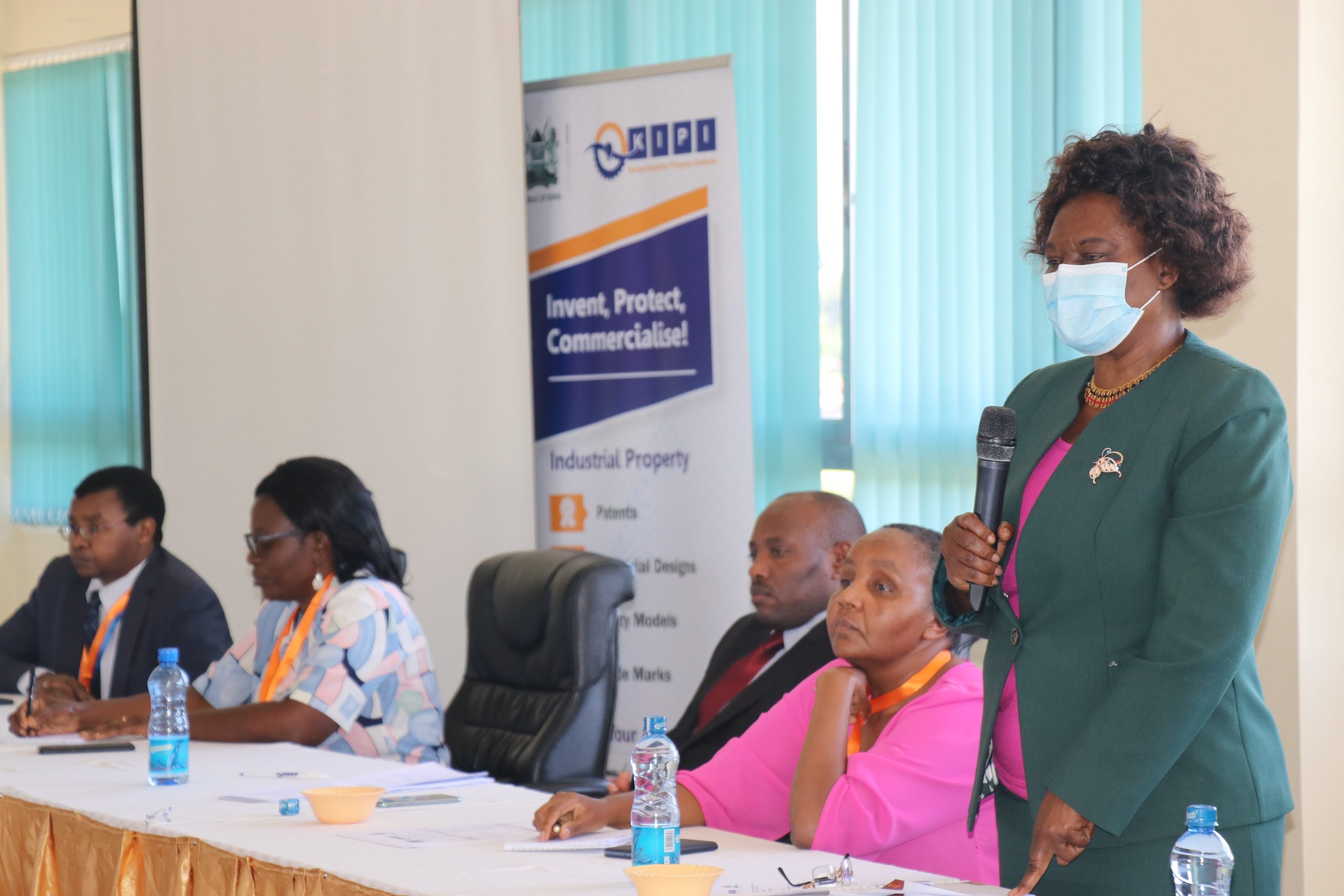A shift in the approach to education where industrialisation is introduced to pupils at an early age was also recommended. This approach, if adopted, will prepare the young for experiences in universities and TVET institutions where innovation is domiciled. Apart from this, KIPI, in collaboration with other institutions, was urged to find ways of conducting trainings on IP to undergraduate students. This would expose and grow them in this era of innovations and inventions.
In order to compete globally, institutions should embed Intellectual Property management in their Performance Contracts. Once this is ratified, it would be easier to monitor and measure how many IPs have been introduced in an institution at a given time. In addition, one of the core functions of KIPI is to promote to the public industrial property information for technological and economic development. Towards achieving this, therefore, it was proposed that, just like the Kenya School of Government, KIPI should come up with a standing schedule of specific courses to sensitize institutions and the public on matters of IP management.
On the issue of mistrust mentioned as a challenge, there was need to break the state of non-disclosure in the sharing of knowledge and information. Other proposals entailed the organisation of internal workshops on IP where KIPI can

